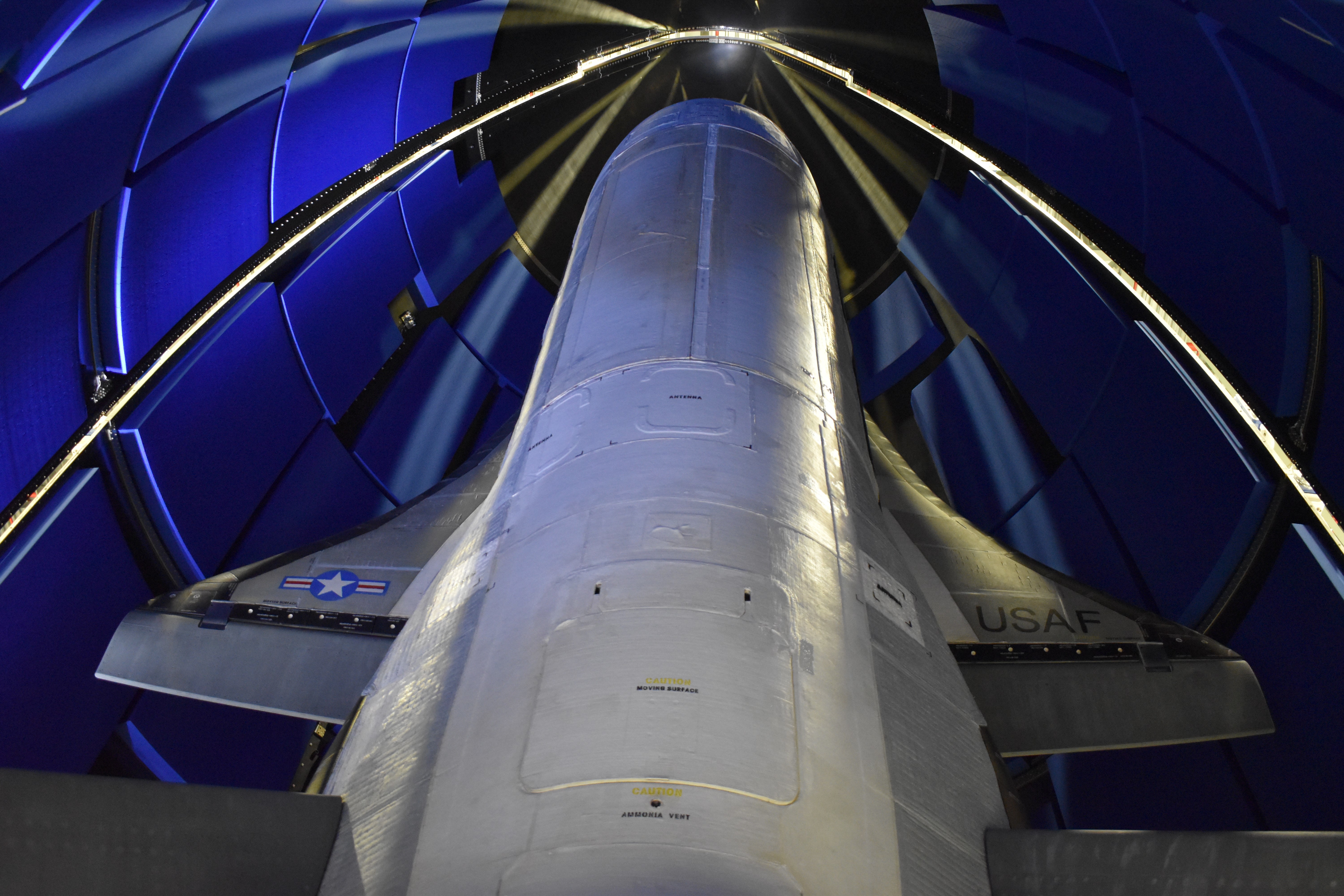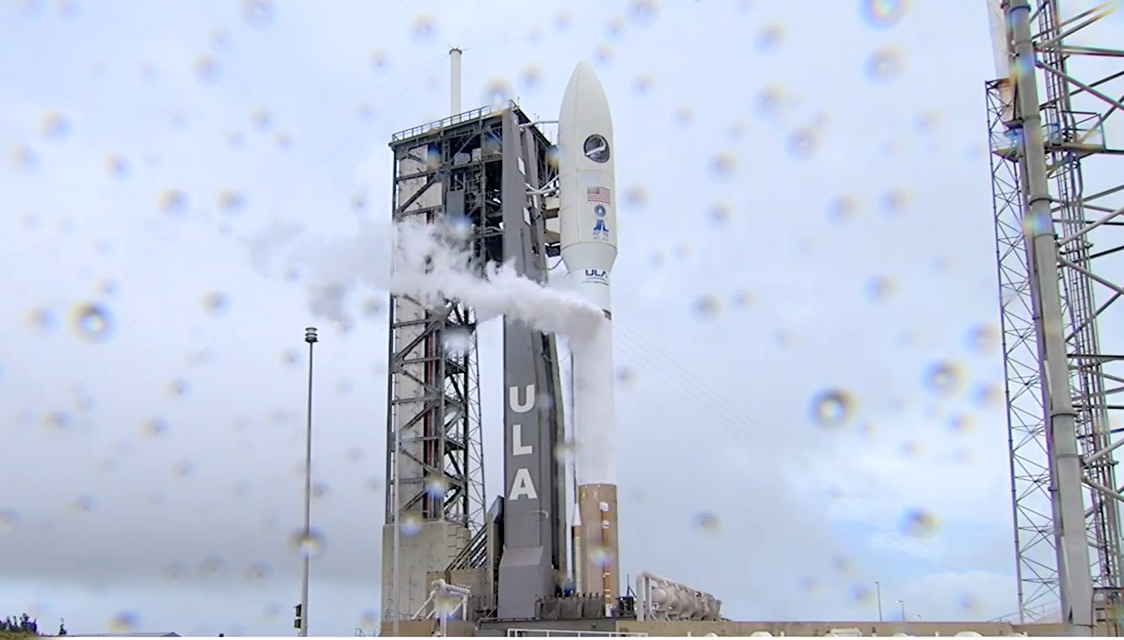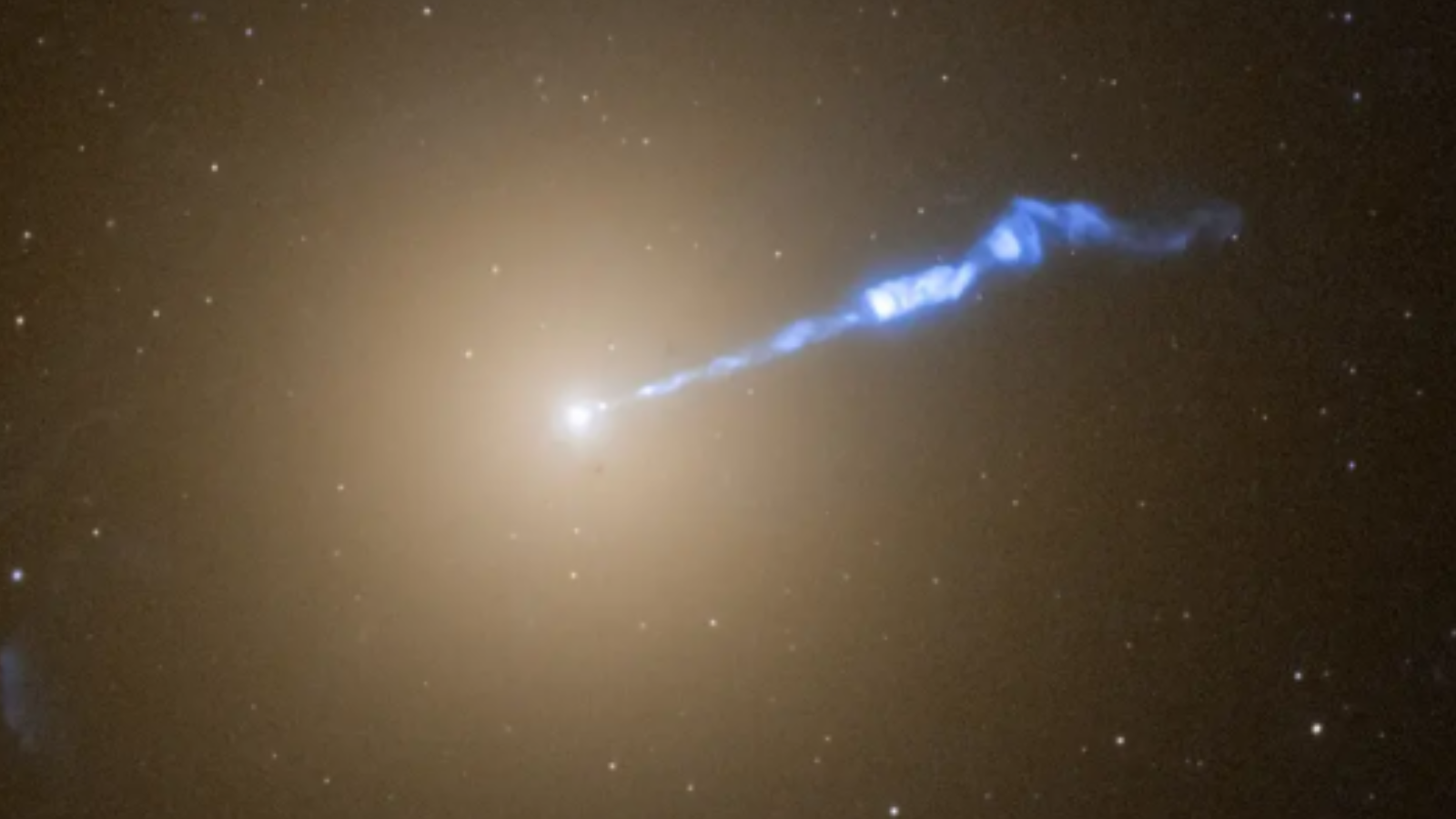Space Force launch of X-37B space plane delayed by bad weather
The secret mission is now set for Sunday, May 17.
The U.S. Space Force's next secret mission of a robotic X-37B space plane has been delayed at least 24 hours after bad weather thwarted a launch attempt today (May 16).
An Atlas V rocket was scheduled to launch the X-37B from a pad at the Cape Canaveral Air Force Station in Florida during a two-hour window this morning. But high winds, thick clouds and rain made liftoff impossible, according to launch provider United Launch Alliance (ULA).
"Darn weather. See you tomorrow," ULA CEO Tory Bruno wrote on Twitter after the launch scrub. "Going to need everyone to focus on those calm, clear thoughts even harder."
The next launch try for the Space Force will occur Sunday, May 17, at 9:14 a.m. EDT (1314 GMT). The U.S. Air Force's 45th Space Wing forecasts an 80% chance of good weather at launch time on Sunday. That's a far cry from the dismal 20% chance the mission had today.
You can watch the X-37B launch live here and on Space.com's homepage beginning at about 9 a.m. EDT (1300 GMT). You can also watch the launch here directly from ULA.
The X-37B is an unpiloted long-duration spacecraft that flies classified missions for the U.S. military which can last months, and sometimes years. Each X-37B is powered by a solar array tucked inside a payload bay about the size of a pickup truck bed.
The Space Force and Air Force have two X-37B space planes, both built by Boeing. The winged spacecraft are reusable, resemble a smaller version of NASA's space shuttles and can land themselves. Together, the two vehicles have flown five missions since 2010, spending a cumulative 2,865 days in orbit.
Breaking space news, the latest updates on rocket launches, skywatching events and more!

While the exact details of the X-37B's upcoming mission, called OTV-6, are classified, the spacecraft is known to be carrying two NASA space environment experiments, a small FalconSat-8 satellite built by the Air Force Academy and a novel solar power-beaming experiment from the Naval Research Laboratory. The spacecraft also has a new service module to support those experiments.
Saturday's launch delay for X-37B will have a ripple effect for mission schedules in Florida's Space Coast. SpaceX was targeted a Sunday launch a Falcon 9 rocket from Space Launch Complex 40 at the Cape Canaveral Air Force Station (just next door to X-37B's Atlas V pad), but must wait until after the Space Force launch is complete.
That SpaceX Falcon 9 is carrying 60 new Starlink internet communications satellites for the company's growing megaconstellation. That launch will now launch no earlier than Monday, May 18, at 3:32 a.m. EDT (0732 GMT), pending the X-37B launch and weather conditions.
Editor's note: Visit Space.com Sunday, May 17, for live coverage of the X-37B OTV-6 launch, beginning at 8 a.m. EDT (1200 GMT).
- US Air Force's secretive X-37B space plane (infographic)
- In photos: SpaceX launches X-37B space plane, lands Falcon 9 rocket
- Gallery: Declassified US spy satellite photos & designs
Email Tariq Malik at tmalik@space.com or follow him @tariqjmalik. Follow us @Spacedotcom, Facebook and Instagram.
OFFER: Save 45% on 'All About Space' 'How it Works' and 'All About History'!
For a limited time, you can take out a digital subscription to any of our best-selling science magazines for just $2.38 per month, or 45% off the standard price for the first three months.

Tariq is the award-winning Editor-in-Chief of Space.com and joined the team in 2001. He covers human spaceflight, as well as skywatching and entertainment. He became Space.com's Editor-in-Chief in 2019. Before joining Space.com, Tariq was a staff reporter for The Los Angeles Times covering education and city beats in La Habra, Fullerton and Huntington Beach. He's a recipient of the 2022 Harry Kolcum Award for excellence in space reporting and the 2025 Space Pioneer Award from the National Space Society. He is an Eagle Scout and Space Camp alum with journalism degrees from the USC and NYU. You can find Tariq at Space.com and as the co-host to the This Week In Space podcast on the TWiT network. To see his latest project, you can follow Tariq on Twitter @tariqjmalik.


